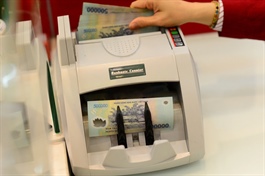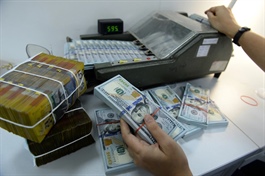Imposing excise tax on sugary soft drinks needs to be considered carefully: conference
Imposing excise tax on sugary soft drinks needs to be considered carefully: conference
The imposition of an excise tax on sugary soft drinks needs to be considered carefully in terms of economic and health impacts, according to a report of the Central Institute for Economic Management (CIEM) announced on Thursday.
 |
CIEM’s report found that the imposition of 10 per cent excise tax rate on sugary soft drinks might have negative impacts on the soft drink industry. — VNA/VNS Photo
The Ministry of Finance is developing an amended Law on Special Consumption Tax which intends to impose tax of 10 per cent on drinks with sugar content over 5g per 100ml.
Nguyễn Minh Thảo, Head of CIEM’s business environment and competitiveness department, said this might have negative impacts on the soft drink industry adding that the production scale of soft drink enterprises might be narrowed and the added value of the industry might decrease, estimated by around 0.772 per cent, equivalent to VNĐ5.6 trillion (US$221.63 billion).
The imposition of the tax will affect not only the soft drink industry but also 24 other related industries. The report estimated that the total added value of the economy will decrease by 0.601 per cent, or VNĐ55 trillion, leading to a decrease in GDP of 0.448 per cent or VNĐ42.57 trillion.
Revenue from corporate income tax will drop by VNĐ2.152 trillion and incomes of workers will decrease by 0.6 per cent, or VNĐ34.534 trillion.
CIEM researchers urged careful consideration to be given on the proposal of imposing special consumption tax on sugary soft drinks with thorough assessments of its impacts.
Nguyễn Thị Cúc, President of the Việt Nam Tax Consultants’ Association, said that several countries have removed excise tax on sugary drinks.
In 2024, the Thai Government reduced excise tax on wines to 5 per cent and spirits to zero to promote consumption by tourists.
Special consumption tax is just a tool to regulate consumer behaviour. There are other effective tools. When introducing a tax policy, it is necessary to consider the feasibility when put into practice.




























